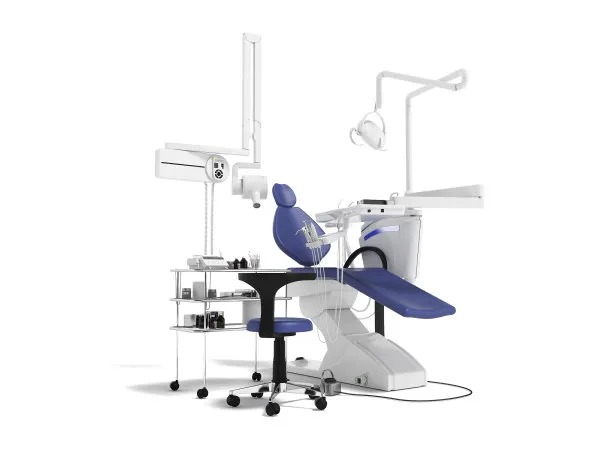Summary: This article delves into the essential safety measures and precautions necessary for conducting successful root canal treatments for both patients and dentists. It highlights four critical areas: patient preparation and education, sterilization and infection control, equipment and technique, and post-treatment care. By exploring these areas in detail, the article aims to provide a comprehensive understanding of how to ensure safe and effective root canal therapy, thereby minimizing risks and enhancing outcomes for all parties involved. Proper adherence to these guidelines not only elevates the standard of care but also establishes trust between dentists and their patients.
1. Patient Preparation and Education
The first step toward ensuring successful root canal treatment lies in thorough patient preparation and education. Prior to the procedure, it is essential for dentists to communicate clearly with their patients about what the treatment entails. Providing detailed information regarding the process, potential discomfort, and expected outcomes helps to alleviate anxiety and fosters a cooperative environment.
Additionally, obtaining a comprehensive medical history is paramount. Dentists should inquire about any pre-existing health conditions, allergies, or medications that could impact treatment. This background enables healthcare providers to tailor their approach and safeguard against adverse reactions.
Finally, obtaining informed consent is crucial. Patients should be made aware of the risks and benefits associated with the procedure and have the opportunity to ask questions. This empowers them and ensures that they feel comfortable proceeding with the treatment, which can significantly impact the overall experience.
2. Sterilization and Infection Control
Infection control is vital in the field of dentistry, especially during invasive procedures like root canals. Strict adherence to sterilization protocols not only protects the patient but also safeguards the dental team. Sterilization of instruments, the use of disposable materials, and regular cleaning of the treatment area are all fundamental practices that must be enforced in dental clinics.
Furthermore, implementing standard precautions, such as the use of personal protective equipment (PPE) including gloves, masks, and eyewear, is necessary to minimize contamination risks. These measures create a barrier against pathogens that could be transferred during the procedure, ensuring a safer environment for both patients and providers.
Moreover, training staff in infection control practices is essential. Continuous education on the latest guidelines helps maintain a culture of safety within the practice. Regular audits of sterilization procedures can also reinforce the importance of compliance and drive improvements in infection control measures.
3. Equipment and Technique Management
The choice of equipment and management of techniques during root canal treatment significantly contribute to its success. Utilizing high-quality, well-maintained tools can enhance the precision and efficiency of treatment. Regular calibration and inspection of dental devices should be part of routine maintenance protocols.
In addition, the technique employed during the procedure can influence outcomes. Dentists should stay updated on the latest advancements in root canal treatment methodologies, including the use of digital imaging and endodontic retrieval systems. This not only ensures optimal results but also reduces the likelihood of complications.
Finally, practicing thorough case planning before the procedure is critical. A well-considered approach that includes diagnostic imaging and a comprehensive treatment plan positions the dental team for success. This foresight enables the dentist to anticipate potential challenges and employ appropriate strategies to address them effectively.
4. Post-Treatment Care Guidelines
Post-treatment care is often overlooked, yet it is essential for ensuring the longevity of the root canal treatment. Dentists should provide clear aftercare instructions, guiding patients on pain management, proper oral hygiene practices, and signs of potential complications that warrant immediate attention.
Follow-up appointments also play a crucial role in recovery. Scheduling these visits allows the dental team to monitor healing progress and intervene promptly if issues arise. This continuous support reinforces the dentist-patient relationship and promotes better outcomes.
Moreover, educating patients about lifestyle modifications can enhance recovery. Suggestions may include avoiding hard foods, maintaining a balanced diet, and adhering to prescribed medications. Such guidance can help ensure a smoother recovery process and support the treatment’s success in the long term.
Summary:
In conclusion, the successful execution of root canal treatment hinges on multiple safety measures and precautions that safeguard both patients and dentists. From thorough preparation and education to rigorous infection control, careful equipment management, and diligent post-treatment care, every step is vital in achieving positive outcomes. By adhering to these essential practices, dental professionals can elevate the standard of care while enhancing patient trust and satisfaction.
This article is compiled by Vickong Dental and the content is for reference only.
Vickong Dental
Vickong Dental is a large medical group established in Hong Kong in 2008 by professors from well-known medical universities in Guangdong and Hong Kong, as well as medical doctors from key national '985' universities (including Master's supervisors and senior professors). The chain of branches brings together expert dentists with PhDs and Master's degrees from Hong Kong and Mainland China, committed to providing high-quality dental treatment.
"Vickong Dental Practices the University Motto of 'Healing and Serving Society,' with a Stable Operation for Sixteen Years. It Has Been honored with Hong Kong Enterprise Leaders's Choice,' and is a Global Trusted Implant Center for the Nobel Implant System. Recommended by Hong Kong Metro Broadcast and Guangdong Television, it Serves Customers from Over Thirty Countries and Regions, Gaining the Trust and Favor of Citizens from the Guangdong-Hong Kong-Macau Greater Bay Area and Surrounding Cities.

Thousands of customers' unanimous praise
The most recognized and highly recommended dental service by customers in the Guangdong-Hong Kong-Macau Greater Bay Area
We Ensure You Receive Detailed Care and Attention Here
Hong Kong standards, Shenzhen prices, Your Trusted English-speaking dentists

Vickong Dental Medical-Grade Instrument Disinfection Process
Vickong Dental Medical-Grade Instrument Disinfection Process

Vickong Dental Chain: A Warm and Comfortable Environment for Treatment






Appointment Hours

Q&A
Why choose Vickong Dental?
Vickong Dental practices the university motto 「Medicine to Benefit Society」, with each branch bringing together highly qualified dentists with doctoral and master’s degrees from Hong Kong and the Mainland, and has maintained seventeen years of steady operation。Recipient of 「2024 Hong Kong Enterprise Leaders Brand」, 「2025 Hong Kong Enterprise Leaders Brand」, a Nobel Biocare Global Trusted Implant Center, and a brand recommended by Metro Radio Hong Kong and Guangdong TV。
To date, we have served customers from more than thirty countries and regions,earning exceptionally high word-of-mouth recognition and trusted recommendations from residents across the Guangdong-Hong Kong-Macao Greater Bay Area and surrounding cities
We have eight major branches in Zhuhai、Shenzhen,and a consultation and service assurance center in Hong Kong,so you can book a free consultation at any time for any questions,which is very reassuring.
If I do not accept the quotation after the CT scan, will I be charged??
No! As long as the actual treatment has not started, you will not be charged any fees.
Will there be any additional charges during the treatment process?
No, there won’t be any additional charges. Before treatment begins, we will clearly explain the treatment plan and its corresponding fees. Only after the patient agrees and signs the consent form will we proceed with the dental service.
Can I pay in Hong Kong dollars?
Yes. Vickong Dental accepts payment in Hong Kong dollars. The amount will be converted based on the exchange rate of the day, and the applicable rate will be clearly communicated to you in advance.
Can I reschedule my appointment at any time?
Yes. Please contact us via **WeChat** or **WhatsApp** as early as possible, providing your original appointment time and details, along with your preferred new date and time slot for rescheduling.













